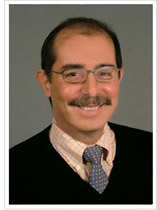Peer Supervision Teleconference
 I am pleased to announce that the next Peer Supervision Teleconference will be held on Saturday January, 14th 2012 from 1:00 to 2:30 PM EST. The guest speaker will be PPD therapist Dr. Bob Evans. Dr. Evans has been treating TMS patients for over 24 years, during which time he has seen over 1,000 patients. I am pleased to announce that the next Peer Supervision Teleconference will be held on Saturday January, 14th 2012 from 1:00 to 2:30 PM EST. The guest speaker will be PPD therapist Dr. Bob Evans. Dr. Evans has been treating TMS patients for over 24 years, during which time he has seen over 1,000 patients.
Dr. Evans trained under John Sarno, Eric Sherman, and Arlene Feinblatt at the Rusk Institute of Rehabilitation Medicine. He has continued to work with Dr. Sarno since his training and wrote briefly about his case studies regarding PPD on pages 169-178 in The Divided Mind. He integrates Mindfulness and Somatic Experiencing, along with other approaches including: Creative Visualization, Yoga, Humanistic, Psychodynamic and Cognitive Behavorial therapies. This is surely to be a very interesting teleconference and I look fowrard to chatting with everyone who is there.
|
Category Two CEU Credits for Supervision Teleconferences
For the past several Peer Supervision Teleconferences, some practitioners have been receiving Category Two CEU Credits, depending on the state. This has been made possible by the gracious work of Dr. Jonna Lee Barta who has researched and organized all of the necessary documentation.
New Book on PPD
Former PPD patient, Steve Ozanich, has recently written a new book on PPD called The Great Pain Deception. The book discusses the author's recovery from chronic pain, and offers an informative explanation of TMS. For more information please check out this forum thread.
|
Q & A with an Expert
 This past week Eric Sherman, PsyD recently joined the wiki's Q&A with an Expert program. His answer is below. The Q&A program is very popular and we are very excited to have it running again. This past week Eric Sherman, PsyD recently joined the wiki's Q&A with an Expert program. His answer is below. The Q&A program is very popular and we are very excited to have it running again.
Question: How do I handle a family member who is not supportive?
When I read about your dilemma, I was reminded of something my mentor, Dr. Arlene Feinblatt taught me early on in my training. Dr. Feinblatt and John Sarno, MD, co-developed the psychologically-based treatment for TMS/PPD over forty years ago. Dr. Feinblatt explained to me, "if a patient gets better by swinging a chicken over his or her head, all that matters is that the patient gets better". Put another way, there are many routes to the top of the mountain, but the view is always the same.
Within all close relationships, disagreements, conflict, and disappointment are all inevitable. The fact that someone experiences these kinds of feelings does not necessarily mean someone doesn't love the other person, or that the relationship is in jeopardy. The existence of such feelings only means that the people involved in the relationship, in your case, the parent and adult child, are human, and not characters out of a fairytale.
Not infrequently, people in close relationships agree to disagree. You and your mother can each respect the other's different viewpoints, much the same way people practice religious tolerance. You can still draw upon her for emotional support, not unlike the way people of different faiths can still befriend one another and work together towards a common goal. You can also explain to your mother how important it is for you to focus on the psychological, rather than get distracted by physical symptoms. Communicate to her how she can best help you. After all, I assume she's only interested in seeing you get better, regardless of what route takes you to the top of the mountain.
You might also want to reflect upon how difficult it is for you to stay on course when you are in conflict with someone who is very important to you. Very often people with PPD are people pleasers, afraid of any conflict with important others. You might want to examine how your fears about being in conflict with your mother are remnants from childhood experiences which are no longer applicable to the situation you are dealing with today as an adult.
The problem you describe is not unusual because people who love one another can hardly be complacent when someone he or she cares about is suffering. If the above suggestions do not help you sufficiently to stay on track, then you might want to consider consulting with a mental health provider who has expertise dealing with issues related to PPD.
|